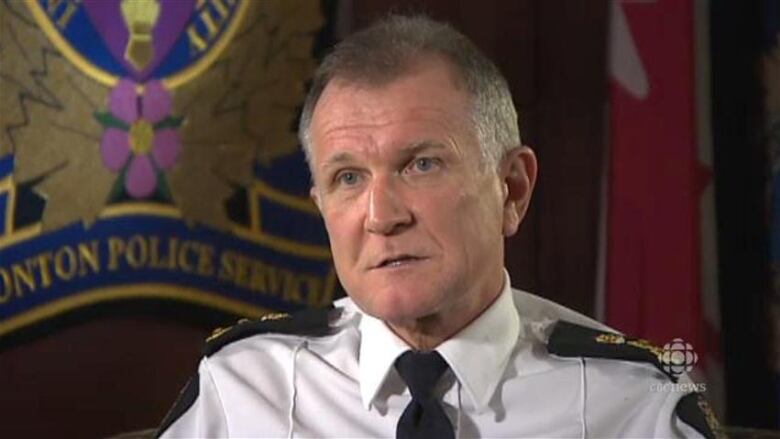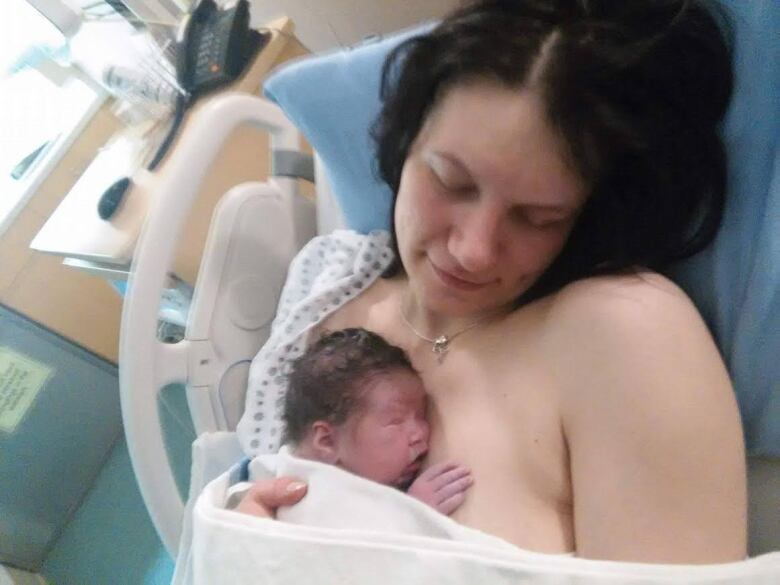Alberta police chiefs try for common ground on naming homicide victims
I think everybodys trying to do the right thing

All 10 of Alberta's police chiefs used aconference call Friday to address the issue of identifying homicide victims.
The police departments are governedby Freedom of Information and Protection of Privacy legislation, but departments have been interpreting that legislation differently.
The teleconference was requested by Edmonton police chief Rod Knecht.
- Edmonton police policy of not naming murder victims stands alone in Alberta
- Edmonton police chief backs anonymity for murder victims

"The chiefs all agree that there should be some consistency," said Medicine Hat police chief Andy McGrogan. "I think everybody wants to find that balance. There's no doubt about that. It's not a matter, I don't think, of anybody not trying to be transparent. It's a matter of trying to follow the legislation."
"I think everybody's trying to do the right thing."
Looking for common ground
McGrogan, who currently heads the Alberta Association of Chiefs of Police, said his counterpartswill ask their department lawyers and FOIP advisors to meet and agree on how to interpret the act.
"It would be great to find a common ground," McGrogan said. "Let's get this group of people together and get back to us within two or three weeks with some kind of a recommendation or a guideline, or kind of a principle policy statement, that would help us be more consistent as a group of chiefs."
McGrogan said representatives from Alberta Justice will also attend the meeting.
But the final decision will rest with the chiefs.
"Lawyers, they're not running our police service," he said. "They're just giving chiefs and services advice on the safest way to move forward."

There have been 17 homicides so far this year in Edmonton. Police have refused to release the names of nine victims, including the death announced this week of 11 day old Eliana Mikayla Rice.
Spokesmen for the province's other two large police forces, Calgary police and the RCMP, say they are committed to releasing victims' names.
Balancing act
There is a standard explanation at the bottom of all Edmonton police news releases when names are not provided. It reads:"Every file is evaluated on a case by case basis. The EPS has decided not to release the name of the deceased in this investigation for the following reasons: it does not serve an investigative purpose,there is no risk to public safety and the EPS has a duty to protect the privacy rights of the victims and their families."
McGrogan said legislation protects a person's privacy for 25 years after death.
"So if you think of a murder victim having privacy rights for 25 years, how do we get around that? Obviously, consent of the families is one of the issues."
McGrogan said if a victim is named in court documents, their identity is already public, so that should also be a consideration.
"But there's no consideration specifically in relation to public interest or public curiosity," he said.
Last week, University of Alberta law professor Steven Penney told CBC News that FOIP legislation permits the disclosure of names, "either because it's already publicly available in court documents or because it's in the public interest for the community to know when there has been a homicide and who was involved in that homicide."












_(720p).jpg)


 OFFICIAL HD MUSIC VIDEO.jpg)
.jpg)



























































































